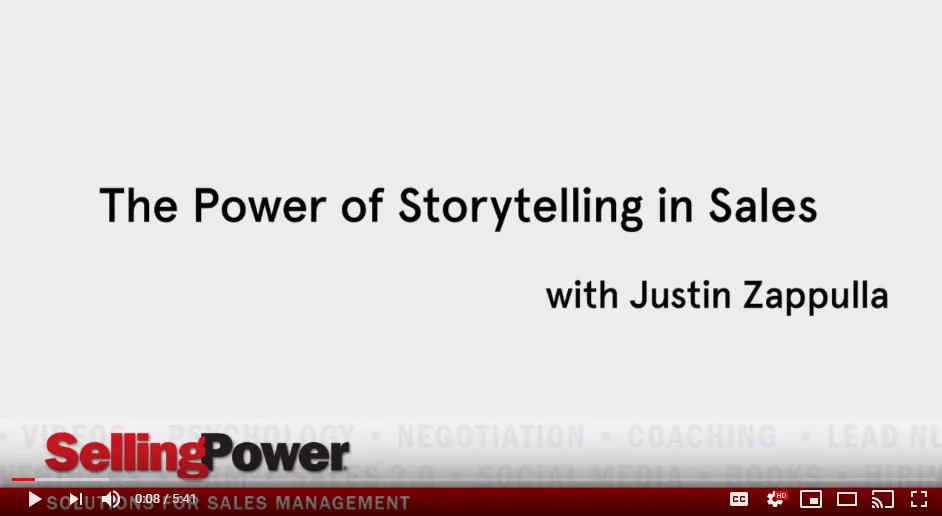7 Impediments to Consultative Selling

In some ways, the very expression “consultative selling” can be misleading as, on the surface, there should be very little “selling” involved. In fact, it could be argued that if you’re “selling,” you’re not doing it right. Instead, consultative selling prioritizes client relationships and opens a dialogue to identify specific needs to provide solutions that are in the client’s best interest. While this can seem straightforward, there are still obstacles to overcome and best practices to implement. Here are a few impediments that could get in the way of consultative selling:
- Not Asking the Right Questions
Experienced sales professionals know asking thoughtful, thought-provoking, open-ended questions, those that require a deeper response than a yes or no answer, can help uncover their client’s true needs. Asking for explanations, such as “Why do you think you didn’t have success?” or “Can you elaborate on the issues you’ve encountered,” invites your clients to open up and get beyond the surface. In contrast, too many close-ended questions can feel like an interrogation and not reveal the client’s true desires. Using the right combination of open- and close-ended questions allows sales professionals to identify the client’s real needs at the same time it lets them direct the conversation, identify a creative solution, and keep the sales process moving forward.
- Not Building Trust
The old expression that trust is earned and not given can be a useful mantra for consultative sellers. One of the best ways salespeople can go about building trust is by placing their emphasis on the client’s needs and how they can help. By keeping the sales aspect secondary to a genuine desire to solve a problem, sales pros establish themselves as partners the client wants to work with. At the same time, being reliable and not pushy also builds credibility and trust. Always follow up and keep clients informed, and make sure your social media posts and sales collateral are germane to the client’s needs and provide additional value.
- Being too Conversational
In sales, it is always important to read your clients and understand their personalities. We’ve all met the outgoing, verbose clients who love to gossip, joke, and jest before, during, and after getting to business. While these can often be our favorite clients, if your interactions consist of too much banter about your favorite team, you might make a friend but miss out on a client. Always engage with the client, but be sure to respectfully lead the conversation back to the business at hand and keep the focus on the client’s professional needs. There will be plenty of time to talk sports or share culinary tips after you present effective solutions.
- Customer-Driven Conversation
Smart salespeople know to let their clients speak. However, it is equally important not to let them drive the conversation. Admittedly, this could require something of a balancing act, but effective consultative sellers know that if the client could diagnose their own problems and find helpful solutions, they would not need you. Being a trusted advisor means it is your job to guide the conversation to continually discover their needs and provide value, and one of the tools in your arsenal to do this is through strategic questions.
- Lack of Business Knowledge
A key component of providing value is a seller’s ability to know the client’s business and their organization’s place within their industry. This builds credibility as an expert who can help solve their problem and means understanding their competition as well as any business or financial news that can affect the buyer’s situation. A sales professional can master all the skills in the world, but if they lack sufficient business acumen and industry knowledge, they will likely not rise to the level of consultative partner for their clients.
- Listening for What You Want to Hear
Another impediment to being an effective consultative seller is listening for what you want to hear. Let’s face it, at the end of the day, all salespeople want to sell their products or services. After all, you have a quota to meet and a family to feed. As such, many have been conditioned to listen to their clients only so far as finding a problem they can solve or come into the conversation with preconceived notions. Both can be difficult habits to break. In many ways, consultative selling is the opposite of this and requires listening without preconceived notions or bias and, instead, being receptive to the client.
- Failure to Challenge the Client
We all have stories where the customer either misunderstood his or her problem, didn’t see the bigger picture, or was just flat out wrong. In consultative selling, it’s important that the salesperson respectfully challenge the client. Be willing to disagree. For many salespeople, this goes against everything they’re been taught about sales, but it is essential to being a consultative seller. After all, you’re in the room or on the call because you are an expert problem solver. You cannot give your best advice to a client if your every answer to them is yes.
For many salespeople, the consultative selling model runs counter to what they find themselves executing. In some ways, it seems almost wrong to call it “selling” as the sales part seems to be missing. Semantics aside, however, consultative selling, with its emphasis on the client’s needs, is an effective way to build the trust that leads to long-term, mutually beneficial relationships, and serious sales professionals know this is far more important—and ultimately rewarding—than any short-term win.

- Account Planning (11)
- Awards (49)
- Client Testimonial (37)
- Personal Branding (19)
- Podcast (11)
- Research (70)
- Sales Career Development (87)
- Sales Coaching (156)
- Sales Consulting (137)
- Sales Culture (170)
- Sales Enablement (354)
- Sales Leadership (110)
- Sales Management (248)
- Sales Negotiation (16)
- Sales Prospecting (124)
- Sales Role-Playing (18)
- Sales Training (234)
- Selling Strategies (263)
- Soft Skills (70)
- Talent Management (94)
- Trusted Advisor (27)
- Virtual Selling (49)
- Webinar (9)


























